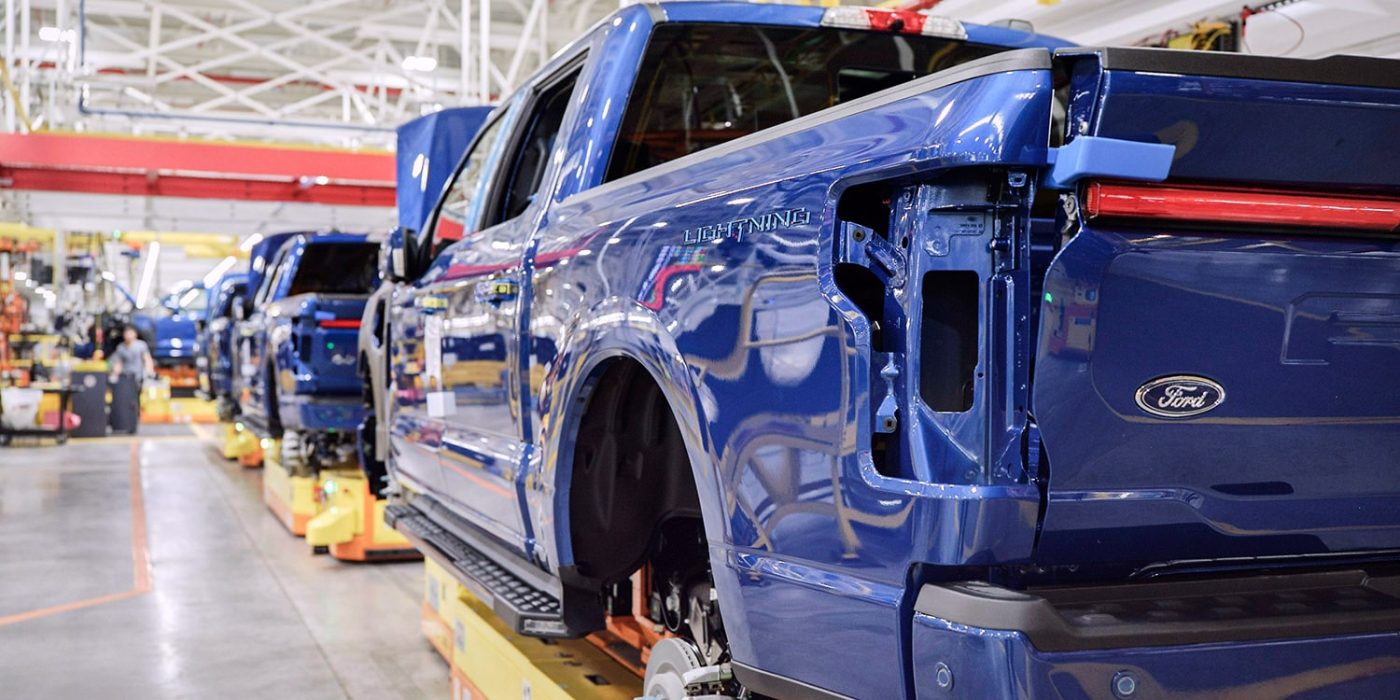Ford’s EV division remains a loss-making business in 2023
Ford has presented its business figures for the fourth quarter and the full year 2023. The company’s EV division generated sales of 1.6 billion dollars in the final quarter, around 200 million dollars below the Q2 and Q3 results. At the bottom line, however, Ford Model e posted consistently high losses: in the fourth quarter, the loss of 1.6 billion dollars was just as high as sales. The loss was 1.3 and 1.1 billion dollars in the two previous quarters, respectively.
The EV division is thus deep in the red. For the year as a whole, revenue in the EV division totalled 5.9 billion dollars (+12 per cent), while the losses of Ford’s EV business totalled 4.7 billion dollars. The Model E division thus lost an average of more than 47,000 dollars per vehicle in Q4/2023. The loss per EV rose from 32,350 dollars in Q2 to around 36,000 dollars in Q3. And Ford expects its electric models to remain a loss-making business in 2024. This year, the company expects the total loss to amount to 5 to 5.5 billion dollars.
One of the reasons is that Ford’s EV sales are stagnating. In the fourth quarter, Ford sold 34,000 units – roughly on par with the figures from the third quarter (36,000) and the second quarter (34,000). Ford also cites “an extremely competitive pricing environment, along with strategic investments in the development of clean-sheet, next-generation EVs.” Material costs have also risen.
But the carmaker could have an ace up its sleeve. According to media reports, Ford is looking to launch the next generation of EVs, and a small team of experts has been working on a low-cost electric car platform for the past two years. The carmaker will focus on smaller EVs.
“They’ve developed a flexible platform that will not only deploy to several types of vehicles but will be a large install base for software and services,” CEO Jim Farley told investors during the company’s fourth-quarter and full-year earnings call.
The EV division “needs to be profitable and provide a return,” said Ford CFO John Lawler. However, it is clear that electric vehicles will not return pretax profit margins of 8 per cent by 2026 – a target that Ford had formulated at the beginning of 2023. “I don’t think anybody believes we can bridge from here to 8% by 2026,” said Lawler.
It has been known since the Q3 annual report that Ford is putting the brakes on its EV roadmap. At the time, Ford announced that it would postpone some of its planned multi-billion investments in new production capacities for electric vehicles and batteries. The first concrete consequence is that Ford will realise its LFP battery cell factory in the US on a much smaller scale than initially designed. The carmaker also cancelled plans for a battery plant for EV commercial vehicles planned with LG Energy Solution and Koç in Turkey. The cost-cutting measures also affect a planned second battery factory on a new campus in Kentucky.
At the end of October, Ford cited the billion-euro losses in the Model e electric division and weakening demand as the reason. “Many North America customers interested in buying EVs are unwilling to pay premiums for them over gas or hybrid vehicles, sharply compressing EV prices and profitability,” the manufacturer wrote in a statement.
The construction of Blue Oval City – Ford’s new EV production campus in Tennessee – will continue without change, but other projects – such as those mentioned above – will be postponed or put on hold.
ford.com, ford.com (PDF, page 18), reuters.com, insideevs.com, twitter.com





1 Comment